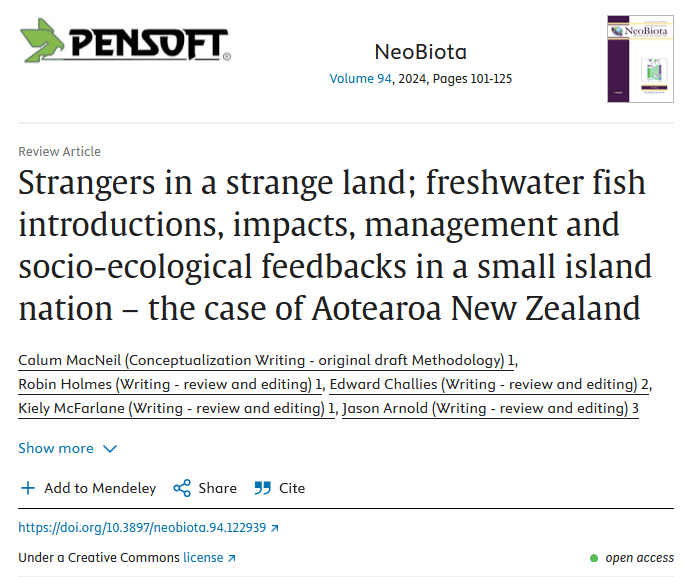Invasive non-native species are a major threat to native biodiversity, especially in freshwater ecosystems. Aotearoa New Zealand has a unique story with these species, as its native wildlife evolved in isolation until the Māori arrived in the mid-thirteenth century. After European colonisation, many non-native freshwater fish were introduced, putting most of our native fish at risk of extinction—almost 90% are found nowhere else in the world. These fish are culturally important to indigenous communities, who have pointed out biases in how non-native species are managed.
As the problem of invasive species grows, it’s crucial to address the history, impacts, and future policies surrounding non-native freshwater fish, including biosecurity measures. Fish Futures’ social and freshwater scientists have used a social-ecological systems approach to explore these issues. Conflicts often arise when some non-native species are viewed as pests, while others are promoted for tourism and recreation, leading to mixed opinions on how to manage them.
Their study reveals that a fragmented policy landscape creates inconsistencies and misalignments, making effective resource use difficult. To tackle the impacts of non-native species and build ecological resilience, they advocate for a unified approach to management that considers the perspectives of all stakeholders involved.

